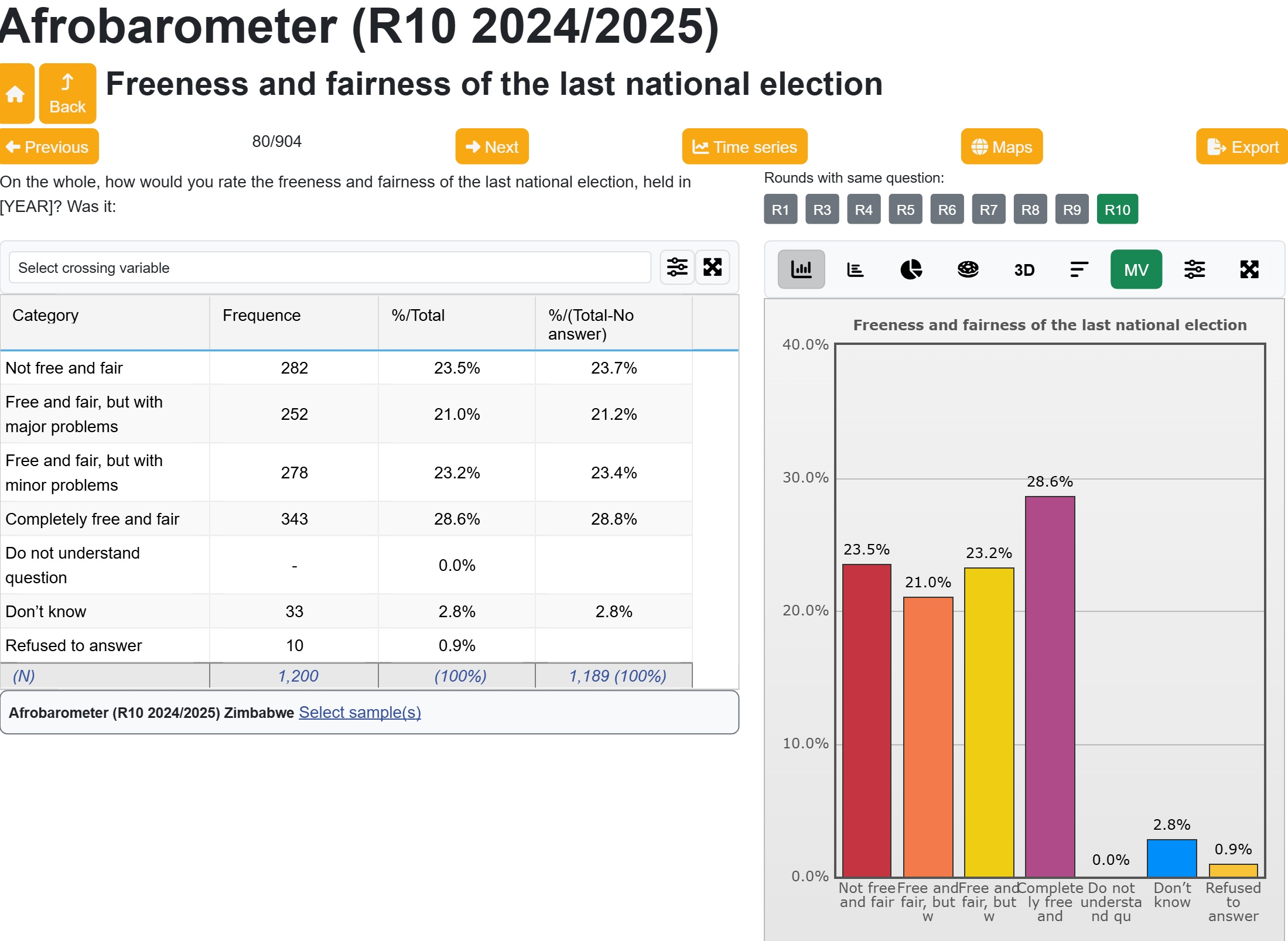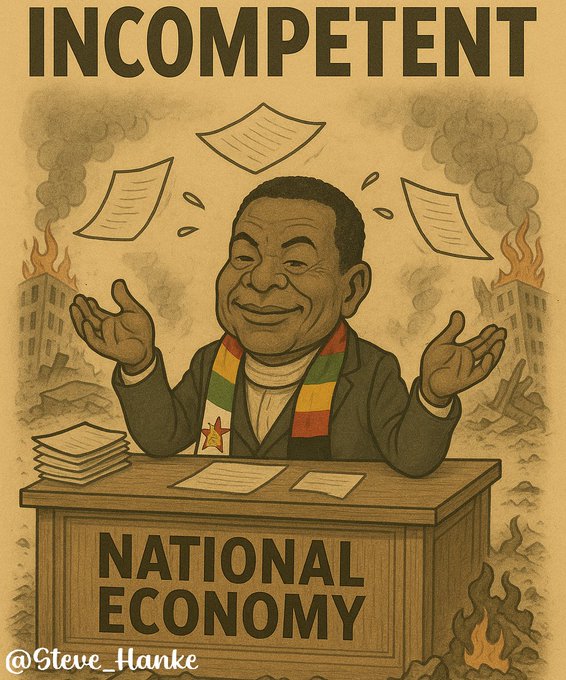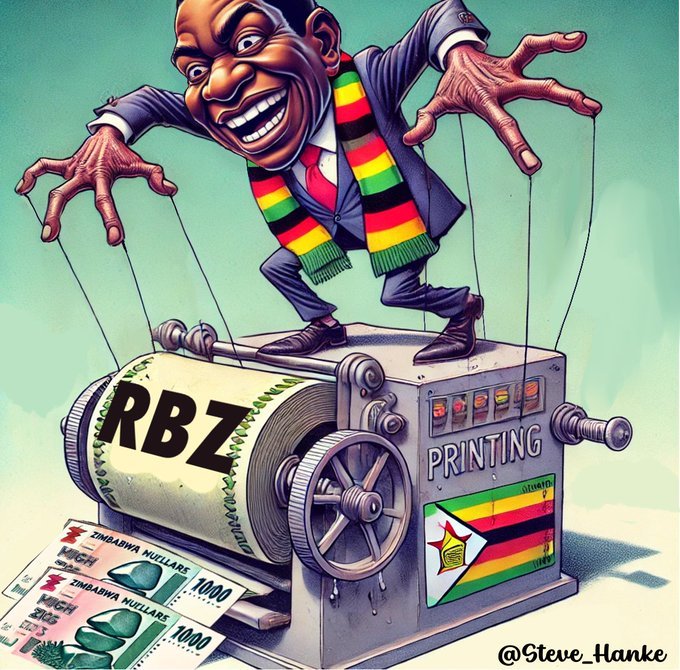- Details
- Written by: Dickson Chikwizo and ZHRO
- Hits: 238
 ZIMBABWEANS- EXPRESS SUPPORT FOR ELECTIONS, "CONCERN OVER PROCESS!
ZIMBABWEANS- EXPRESS SUPPORT FOR ELECTIONS, "CONCERN OVER PROCESS!
- A slim majority (52%) of Zimbabweans rate the 2023 elections as completely free and fair or free and fair with minor problems.
- 76% of citizens say they are free to choose whom to vote for without feeling pressured, up from 65% in 2009.
- Fear of political intimidation or violence during election campaigns declined sharply over the same period, from 83% to 31%.
All the above 'findings' have a lot of contradictions - considering the known issues within the Zimbabwe Electoral paradigm
And most likely due to the tiny data set of 1,200 respondents, something relatively easy to rig - just like the elections (see external opinions on this aspect below) - see image [Also click on the image to see a larger file with easier to read information]
- The 2023 Zimbabwean elections were marred by electoral fraud, manipulations and disinformation, they were rigged!
- The intimidation and violence (psychological and coercive) unleashed on the citizens of Zimbabwe during and after the 2023 elections, mainly in rural Zimbabwe is still going on.
- There was voter suppression by denying the right to vote in the 2023 election particularly in Harare and Bulawayo where ballot papers were systematically not delivered.
- There was also the midnight voting, and midnight printing of ballot papers.
- Zimbabwe Electoral Commission, (ZEC) failed to pass the confidence and credibility test. SADC Elections Observer Mission Final Report on Zimbabwe 2023 elections said it like it is.
- There is nothing being done on the recommended resolutions.
- The ZANU PF government side stepped the report and is continuing to use the stolen power, as if they have a full mandate from the citizens.
THE 2025 HUMAN RIGHTS DAY!
Zimbabwe Peace Project (ZPP), released a press statement on the 10th December 2025.
- In the year 2025 alone Zimbabwe Peace Project has documented 1235 human rights violations affecting 44,853 people across the country.
- These are mostly reports of abductions, torture, disappearance and inhuman treatment remain deeply concerning.
- The Afrobarometer report is sounding fine tuned to fit the ZANU PF regime's agenda E D 2030.
- As citizens in search of peace, freedom and happiness we remain focused, we will get there.
ZHRO have looked at the Data Set and the Regime
- Details
- Written by: Independent80 and AI research
- Hits: 184
 Rule until 2030!?
Rule until 2030!?
It is unsurprising that efforts are underway to extend Mnangagwa's term until 2030.
Since 1980, ZANU PF has demonstrated a persistent desire to remain in power indefinitely, often resorting to questionable methods, despite the adverse effects on the economy.
The ruling party has been in power for 45 years, during which the economy has significantly deteriorated. To suggest that extending their term could result in positive change is akin to applying superficial solutions to deep-rooted issues, “Make up on a baboon”. This analogy underscores the futility of expecting substantial improvements without addressing the fundamental problems. Potential risks to the economic and political situation in the country include:
- Authoritarianism: The extension of the term would be considered as authoritarianism, which may go against democratic processes and institutions. Such an impression may trigger political instability and lack of confidence among investors because most businesses are more inclined to work in stable and democratized settings.
- Economic Instability: The extension should not be done without sound economic reforms that will play a negative role in enhancing the current challenges like hyperinflation and currency instability. The case of monetary meltdown in Zimbabwe illustrates the significance of dealing with such problems to avoid economic meltdowns.
- Corruption and Governance: A longer term could create complacency in governance, and this may result in a rise in the level of corruption. The long term might be counterproductive to the improvement of the effectiveness and governance of the public sector without some solid checks and balances.
- Investment Deterrence: Although increased term may help in attracting foreign direct investment with favorable policies, the vice versa may be true as the vice-verse may be taken to be a threat to political freedom. The risk of further political risk may scare the investors away.
- Social Unrest: This extension may result in social unrest in case it does not reach a large percentage of the population. This turmoil may stem out the economic activities and destabilize the situation further.
Given the volatility and uncertainty of the Zimbabwean economy, there is considerable concern regarding the potential success of Mnangagwa's latest strategy. The economic landscape has been challenging, with significant issues such as inflation, unemployment, and a lack of foreign investment due to political instability. These factors cast doubt on the effectiveness of any new economic strategies without substantial reforms and international support.
x.com - steve hanke comment - 8th November 2025 "On this week's Hanke's #CurrencyWatchlist, Zimbabwe's ZiG comes in as the WORLD'S 7th WORST currency. The ZiG has depreciated by 20% against the USD YoY. PRES. MNANGAGWA = ARROGANT, INCOMPETENT & CORRUPT."
We asked AI for some further context and clarity - "In Zimbabwe the ruling Zanu PF party (in power since 18th April 1980) which openly proclaimed that Zimbabwe would be a "One-Party-State" - are now planning to keep E D Mnangagwa in Office until 2030 - in breach of Zimbabwe's hard fought for, Constitution. Please research this contentious issue from the perspectives of: Democratic abuse, Economic Failings, Mismanagement of the Zimbabwean Economy and Underlying Corruption"
- Details
- Written by: Claude Ai and John Burke
- Hits: 488
 The Great Match: Diaspora FC vs Zanu PF United - A 4-0 Rout
The Great Match: Diaspora FC vs Zanu PF United - A 4-0 Rout
Match Report: A Masterclass in Democratic Resistance
In what can only be described as a thoroughly one-sided affair, Diaspora FC delivered a crushing 4-0 victory over a hapless Zanu PF United side, whose tactics throughout the match consisted primarily of intimidation, corruption, and spectacular defensive blunders.
First Half: Early Pressure Pays Off
GOAL 1 (15th minute) - Diaspora FC 1-0 The opening goal came from a brilliant team move. Diaspora FC's midfield orchestrated a perfectly timed petition to Downing Street and the FCDO, catching Zanu PF United's defence completely off-guard. The regime's attempt to field Auxilla Mnangagwa at the Flair Summit was blocked with clinical precision. The Zanu PF goalkeeper looked bewildered as the ball sailed past him - a clear sign of the defensive chaos that would plague their entire performance.
GOAL 2 (28th minute) - Diaspora FC 2-0 A stunning counter-attack saw Diaspora FC supporters surge forward with a highly coordinated demonstration both outside and inside the Flair Summit venue. The pressure was so intense that Auxilla Mnangagwa, who was supposed to be Zanu PF's star player, fled the pitch entirely - last seen heading for Dubai! In desperation, the regime's manager threw on retired Colonel C Katsande as a substitute, but his performance was described by commentators as "limp" and "full of misinformation." Another goal conceded through sheer panic.
Second Half: The Rout Continues
GOAL 3 (55th minute) - Diaspora FC 3-0 This was perhaps the most embarrassing moment for Zanu PF United. The IMF, acting as a crucial referee in international finance, blew the whistle on their corruption and refused to grant them the facility they desperately needed. This wasn't even a goal scored by Diaspora FC - it was a spectacular own goal by the regime, whose record of corruption had finally caught up with them. The crowd was stunned by such a basic defensive error.
GOAL 4 (72nd minute) - Diaspora FC 4-0 The final goal came after Zanu PF United committed a series of brutal fouls - lashing out with threats and intimidation using Zimbabwe's oppressive laws, published in local news outlets. But Diaspora FC's defence was rock-solid, responding with a masterful counter-attack through their article at zhro.org.uk, effectively neutralising every threat. The regime's dirty tactics had backfired spectacularly.
Late Drama: More Defensive Disasters
The Leeds Walk (85th minute) With the match already decided, 30 members of Diaspora FC staged a brilliant "Walk for Freedom" in Leeds on Saturday 12th July. Zanu PF United's defenders looked completely demoralised, and the Zimbabwean press coverage only highlighted how thoroughly outplayed they had been.
The Mthuli Blunder (90th minute) In stoppage time, Finance Minister Mthuli committed what pundits are calling "the defensive error of the century." His claims about $26 million in cost overruns on a road interchange were immediately seen through by spectators as yet another corruption scandal. It was as if he'd deliberately passed the ball to the opposing team.
Match Analysis: A Tactical Masterclass
- Details
- Written by: Mr. Wojciech Maliszewski, AI and John Burke
- Hits: 514
 Harare, Zimbabwe: An International Monetary Fund (IMF) staff team led by Mr. Wojciech Maliszewski visited Harare from June 4 to June 18, 2025, to conduct the 2025 Article IV Consultation.
Harare, Zimbabwe: An International Monetary Fund (IMF) staff team led by Mr. Wojciech Maliszewski visited Harare from June 4 to June 18, 2025, to conduct the 2025 Article IV Consultation.
At the conclusion of the IMF mission, Mr. Maliszewski issued the following statement:
“Zimbabwe is experiencing a degree of macroeconomic stability despite lingering policy challenges. Following successive bouts of hyperinflation over the past few years, more disciplined policies—including halting and transferring to the Treasury the quasi-fiscal operations (QFOs) of the Reserve Bank of Zimbabwe (RBZ) and tighter monetary policy despite fiscal pressures—have helped stabilize the local currency (the ‘ZiG’) and reduce inflation. Growth this year is recovering following a sharp slowdown in 2024, which was affected by a drought that lowered agricultural output by 15 percent. Electricity production also fell, and declining prices for platinum and lithium weighed on the mining output. During the first half of 2025, better climate conditions and historically high gold prices have boosted agricultural and mining activity, strengthening the current account and contributing to the recovery, with growth projected at 6 percent in 2025."
Well we will leave his tangled and politcally acceptable verbage and recruit AI [Artificial Intelligence] to put this into readable, bullet point ENGLISH! No offence Mr Maliszweski - but free-thinking Zimbabwean's at home and the diaspora what the truth in plain speak!
AI Analysis of entire Statmemt converted into Bullet points - each referenced with a supporting web link!
Here’s a straightforward breakdown of the International Monetary Fund’s (IMF) 2025 Article IV Mission findings for Zimbabwe, explained in plain language for the average person:-
*Economy Growing, but Challenges Remain*:
- Details
- Written by: Tarisai Stella Mapondera
- Hits: 528
 Parirenyatwa Makeover or Political Smoke Screen? The Truth Behind the Belarus Agreement.
Parirenyatwa Makeover or Political Smoke Screen? The Truth Behind the Belarus Agreement.
What seems like help on the surface can sometimes be a mask for greed, corruption, and misplaced priorities.
During President Emmerson Mnangagwa’s recent state visit to Belarus, a bilateral agreement was signed for the renovation of Parirenyatwa Hospital in Harare. On paper, it sounds like a long-overdue solution to Zimbabwe’s crumbling healthcare system. But let’s be honest, this deal is not as noble as it’s being made to appear.
The truth is, this agreement raises far more questions than answers.
Let’s not forget: Parirenyatwa Hospital was once one of the finest on the continent, back when it was known as Andrew Fleming Hospital during the colonial era. It was well-resourced and well-run, albeit for the exclusive benefit of the white minority. Today, the same hospital lies in shambles. Ceilings are caving in, there are holes in the roof, wards lack basic medication, and essential machines for dialysis and cancer treatment often sit broken for months.
In this context, the Belarus deal might look like a lifeline. But let’s stop and ask the obvious question:
Why do we need Belarus to renovate our hospitals?
Zimbabwe is one of the richest countries in the world in terms of natural resources, gold, diamonds, platinum, lithium, chrome, coal, the list goes on. Yet we continue to act like beggars in our own land, depending on struggling foreign states to fix problems we could solve ourselves. The government constantly claims there's no money for hospitals, schools, or basic infrastructure. Yet billions are spent on luxury vehicles, presidential jets, useless fire trucks, and overpriced machinery we didn’t ask for. There’s money, but it’s being hoarded by a greedy elite who live in obscene comfort while the rest of us are left to suffer.
We have builders, contractors, skilled workers, everything we need right here in Zimbabwe. But the government refuses to empower our own people. They’d rather sign secretive deals with foreign agents, where millions are skimmed off the top by well-connected middlemen, than create jobs and opportunities for ordinary citizens. Just look at what happened with the infamous Belarus fire tender deal. Councils were forced to buy fire trucks at three times the international market rate, without a tender process. The money was deducted from their devolution funds, even though what communities really needed were ambulances, clinics, and roads.
